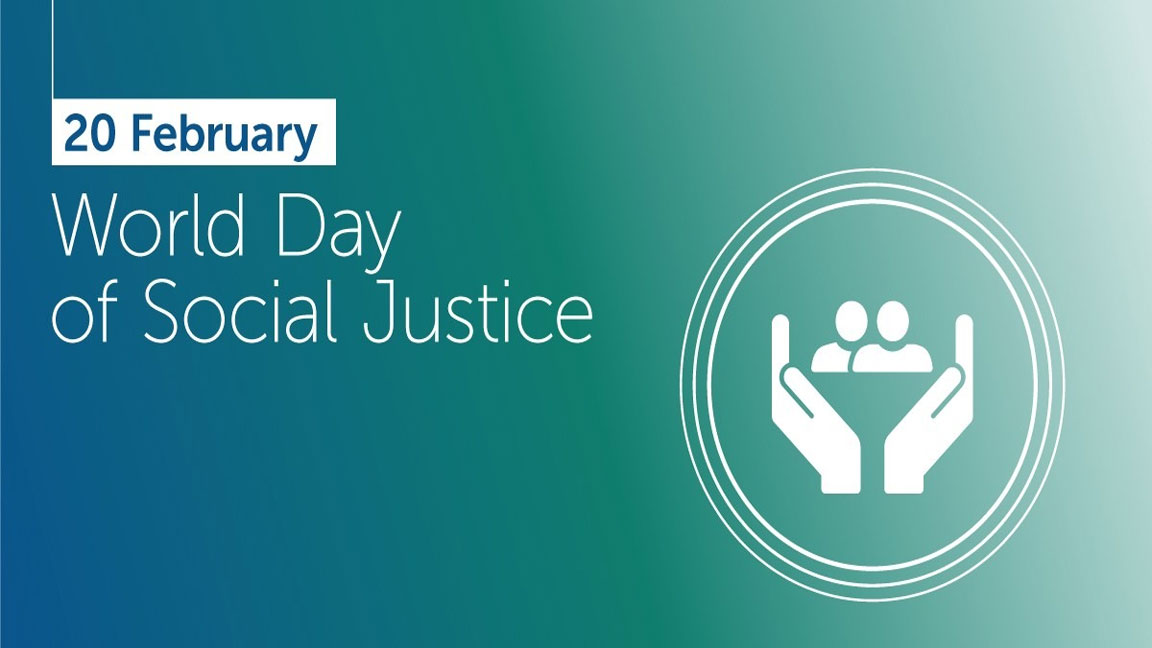






In Nigeria, the Catholic Secretariat of Nigeria (CSN) has launched a comprehensive course on Catholic Social Teaching (CST) to educate individuals on justice, human rights, and the common good. The course aims to equip participants with the knowledge and tools to advocate for social justice and human dignity. It covers topics such as solidarity, subsidiarity, stewardship of creation, and the preferential option for the poor and vulnerable. The course is facilitated by Caritas Nigeria, Catholic Relief Services (CRS), and Veritas University. The pilot phase will begin with 17 selected individuals who will then train others at the diocesan, provincial, and national levels [7f962e1b].
This initiative in Nigeria aligns with the global movement towards promoting social justice and human rights. The World Day of Social Justice, observed on February 20th, serves as a reminder of the importance of creating equitable and just societies. It provides an opportunity to reflect on the concept of social justice and its significance in an unjust world. The day emphasizes the need to bridge gaps and build alliances to address social injustices worldwide [8e4905f7].
The course on Catholic Social Teaching in Nigeria is part of a broader effort to foster justice and human rights. It complements the initiatives undertaken by the Open Doors Initiative in Ireland, which promotes corporate social justice by creating pathways to education, employment, and entrepreneurship for marginalized individuals. The Open Doors Initiative offers internships, scholarships, training courses, and employment opportunities to refugees, asylum seekers, migrants, people with disabilities, disadvantaged youth, and other marginalized groups. By embracing corporate social justice, businesses can play a significant role in improving society and creating a more inclusive and equitable environment for all [b3d73db6].
The launch of the course on Catholic Social Teaching in Nigeria demonstrates the commitment of the Catholic Church to promoting social justice and human rights. It provides individuals with the knowledge and tools to advocate for justice, human dignity, and the common good. Through lectures, discussions, and practical exercises, participants will gain a deeper understanding of topics such as solidarity, subsidiarity, stewardship of creation, and the preferential option for the poor and vulnerable. Upon completion of the course, participants will be encouraged to become ambassadors of Catholic Social Teaching, spreading awareness and advocating for social justice at the diocesan, provincial, and national levels. This initiative represents a significant step forward in fostering justice and human rights in Nigeria [7f962e1b].
In a recent analysis by Julian E. Zelizer on Commonweal Magazine, the author explores the intersection of Catholic social teaching and social democracy. Zelizer argues that social democracy, an economic system that promotes public goods, welfare state, and workers' rights, can learn from Catholic social teaching. Catholic social teaching condemns economic liberalism and advocates for just wages, protection of the poor and workers, and the role of the state in economic affairs. The principles of Catholic social teaching align closely with social democracy, including the common good, integral human development, solidarity, subsidiarity, reciprocity and gratuitousness, the universal destination of goods, the preferential option for the poor, economic rights, and norms of justice. Zelizer suggests that a new kind of social democracy is needed for the present era, which includes a robust welfare state, workplace democracy, decarbonization, and an agreement between the Right and Left on economic policy [ef9aa38f].
Christian engagement in politics is also a topic of discussion. The Catechism of the Catholic Church emphasizes the importance of politics in promoting the common good and respecting fundamental rights. Christians have a responsibility to be informed about Catholic social doctrine and support political representatives who defend social justice, solidarity, and subsidiarity. Roberto Benigni, a renowned Italian actor and filmmaker, strongly condemns indifference to politics and urges people to love politics as it affects their own lives and the lives of their children. Benigni criticizes the belief that all politicians are the same, as it allows for a culture of corruption. He also emphasizes the importance of voting in a democracy, highlighting that many people fought for the right to live in a democracy and choose worthy representatives. However, in Malta, there is a lack of maturity and integrity in politics, with people having fanaticism towards political parties and using their vote for personal gain. Honest politics cannot flourish in such a climate. Each individual has a responsibility to inform themselves and support those who promote values that respect the common good [7eed106e].
In a recent opinion piece by Michael P. L. Friday, published by Baptist News Global, the author urges voters to consider their neighbors and vote for inclusivity, emphasizing soul freedom, religious freedom, and the separation of church and state. Friday highlights the importance of voting for marginalized communities, including Puerto Ricans, Latinos, Congolese, Burmese, women, and LGBTQ Christians. He critiques Christian nationalism as harmful and calls for a collective 'us' perspective in voting, advocating for a political landscape that embraces all individuals rather than dividing them into 'us' versus 'them' [ad2c4413].
The relationship between voting, love, and Christian nationalism is further explored in an article by Beth McKee-Huger in the Greensboro News & Record. The article highlights the difference between Christian nationalism that focuses on power and exclusion and the Poor People's Campaign that aims to address real-life needs and promote love. It emphasizes the importance of voting in the upcoming elections and encourages people to choose candidates who will address issues such as poverty, housing, healthcare, and education. The article suggests reaching out to discouraged voters and reminding them of their power to change the outcome of elections. It also mentions the Moral March on Washington organized by the Poor People's Campaign to inspire voters and draw attention to harmful policies. The author, Beth McKee-Huger, is an Episcopal deacon, farmer, and housing advocate based in Greensboro [0f83447c].